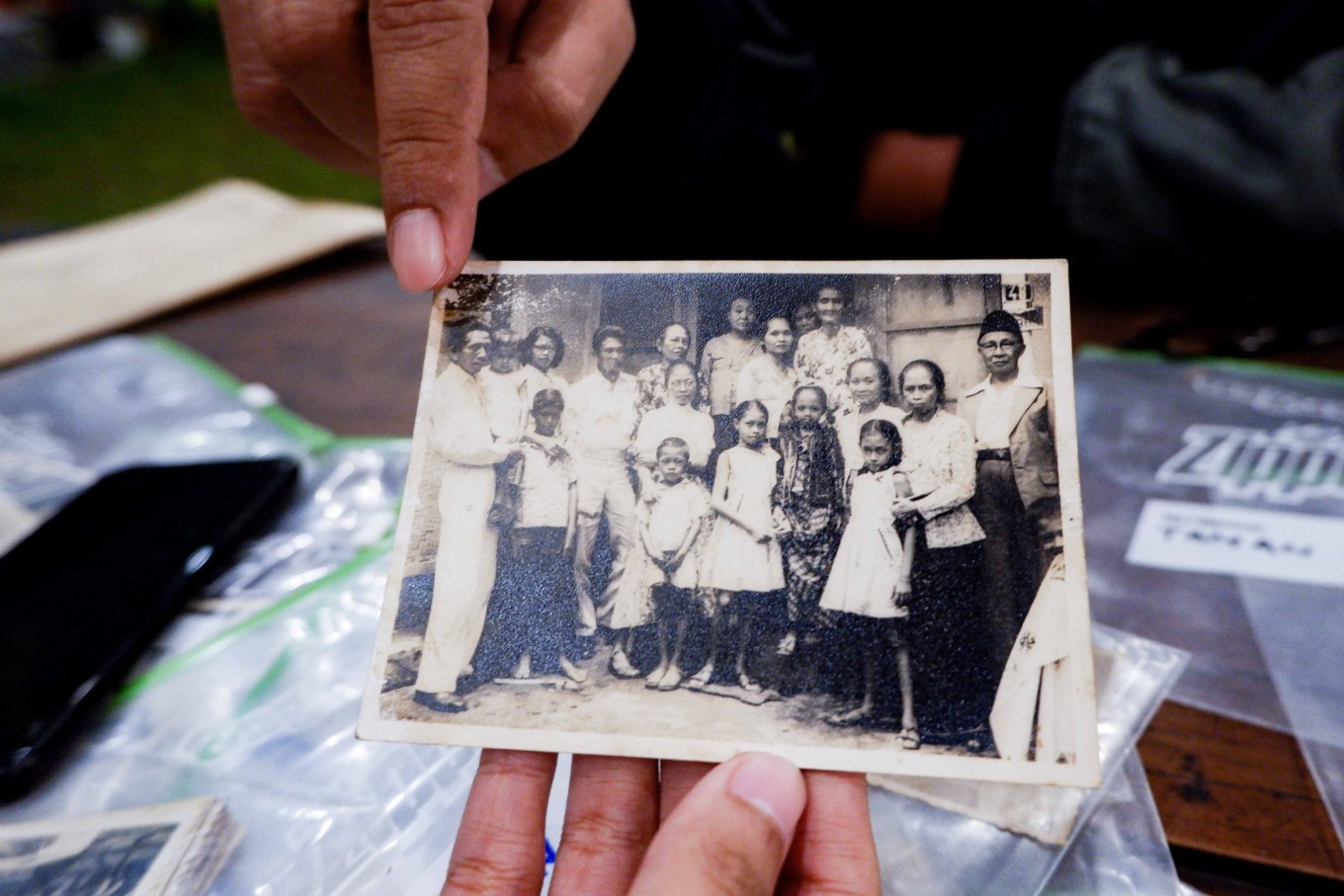News
Fadli Zon leads the nation to collective amnesia
Tenggara Strategics June 30, 2025 Rangga Purbaya points to his grandfather, who went missing in 1965, in an old black-and-white photograph. He was a teacher at Taman Siswa Bangka Belitung, which was associated with the Indonesian Communist Party (PKI). (JP/Umar Wicaksono)
Rangga Purbaya points to his grandfather, who went missing in 1965, in an old black-and-white photograph. He was a teacher at Taman Siswa Bangka Belitung, which was associated with the Indonesian Communist Party (PKI). (JP/Umar Wicaksono)
Culture Minister Fadli Zon's recent denial of mass rapes during the May 1998 riots has rightly sparked outrage, highlighting the need for accountability from state officials. The Culture Ministry is currently preparing an "official" Indonesian history book, aiming to rewrite the nation's past in a more "positive" light for Indonesia’s 80th independence anniversary.
Beyond denying the 1998 mass rapes, Fadli staunchly opposes revisiting the Sept. 30, 1965, (G30S) events and the subsequent massacre. He asserts, "Let’s not distort history […] The Indonesian Communist Party [PKI] did indeed want to take over power from the state at the time. Where’s the controversy? There is no controversy."
The official state narrative portrays G30S as a failed coup by the PKI, involving the killing of six Army generals. This event led to the fall of Sukarno’s Old Order and the rise of Soeharto’s 32-year authoritarian New Order regime.
However, scholars like the late Cornell University professor Ben Anderson have challenged the PKI's involvement, suggesting the generals' deaths resulted from internal squabbling within the Army. Regardless of the PKI's exact role, the ensuing massacre by the New Order regime, enacted to avenge the generals, remains a dark and taboo chapter in Indonesian history.
In his ascent to power, anti-communist Soeharto systematically eradicated anything perceived as communist. He mobilized the Army and pro-New Order masses to indiscriminately target suspected communists or sympathizers. This period saw widespread mass killings, torture, and the false imprisonment of many accused of PKI ties, who were sent to the Buru Island penal colony for forced labor without fair legal processes.
The exact death toll from these events remains disputed, with no official figure to date. Historians estimate the deaths range from tens of thousands to over 1 million. Notably, former Army general Sarwo Edhie Wibowo, a New Order loyalist tasked with purging the PKI, once claimed to have killed 3 million "communists" during the 1965-1966 purge.
Despite the controversy, past administrations have shown willingness to address these historical injustices. Indonesia's fourth president, Abdurrahman “Gus Dur” Wahid, openly sympathized with the victims and apologized for the state-sanctioned killings of 1965-1966. He even controversially attempted to revoke the 1966 Provisional People's Consultative Assembly (MPRS) decree banning the PKI and Marxism-Leninism, though he ultimately failed due to widespread political opposition.
More recently, in 2023, then-president Joko “Jokowi” Widodo formally recognized the 1965-1966 events as one of 12 "gross human rights violations" by the state. He offered citizenship to exiled nationals whose passports were revoked by the New Order. Additionally, Jokowi’s then-coordinating political, legal and security affairs minister, Mahfud MD, assured that compensation and aid would be provided to families of former PKI members who continued to face discrimination due to past political affiliations.
Lamenting the tagline “his-story”, Fadli's rejection of revisiting these past tragedies appears to stem from personal bias, rather than an objective historical account. This is particularly concerning given his staunch alliance with President Prabowo Subianto, the former son-in-law of Soeharto.
Since Prabowo, a former New Order Army general, became president, Soeharto's legacy has undergone a posthumous rebranding, with attempts to absolve him of his past actions. Soeharto is even on a shortlist of candidates to be named a national hero by the Social Affairs Ministry, a move widely contested by human rights groups and civil society.
The true danger in forgetting the atrocities of 1965-1966 lies not just in the re-imagining of Soeharto’s public image, but in the risk of collective amnesia within Indonesian society. As time passes, losing these tragedies from the nation's collective memory will become problematic, as those who cannot remember the past are condemned to repeat it.
What we've heard
One of the historians involved in the project said that the team is striving to present information about human rights violations as fairly as possible. He hinted that topics related to human rights would be written as a separate book volume. Nonetheless, the writing team will still include accounts of mass rapes in the chronicle of the 1998 riots. “The writing will be based on hard facts,” he said.

